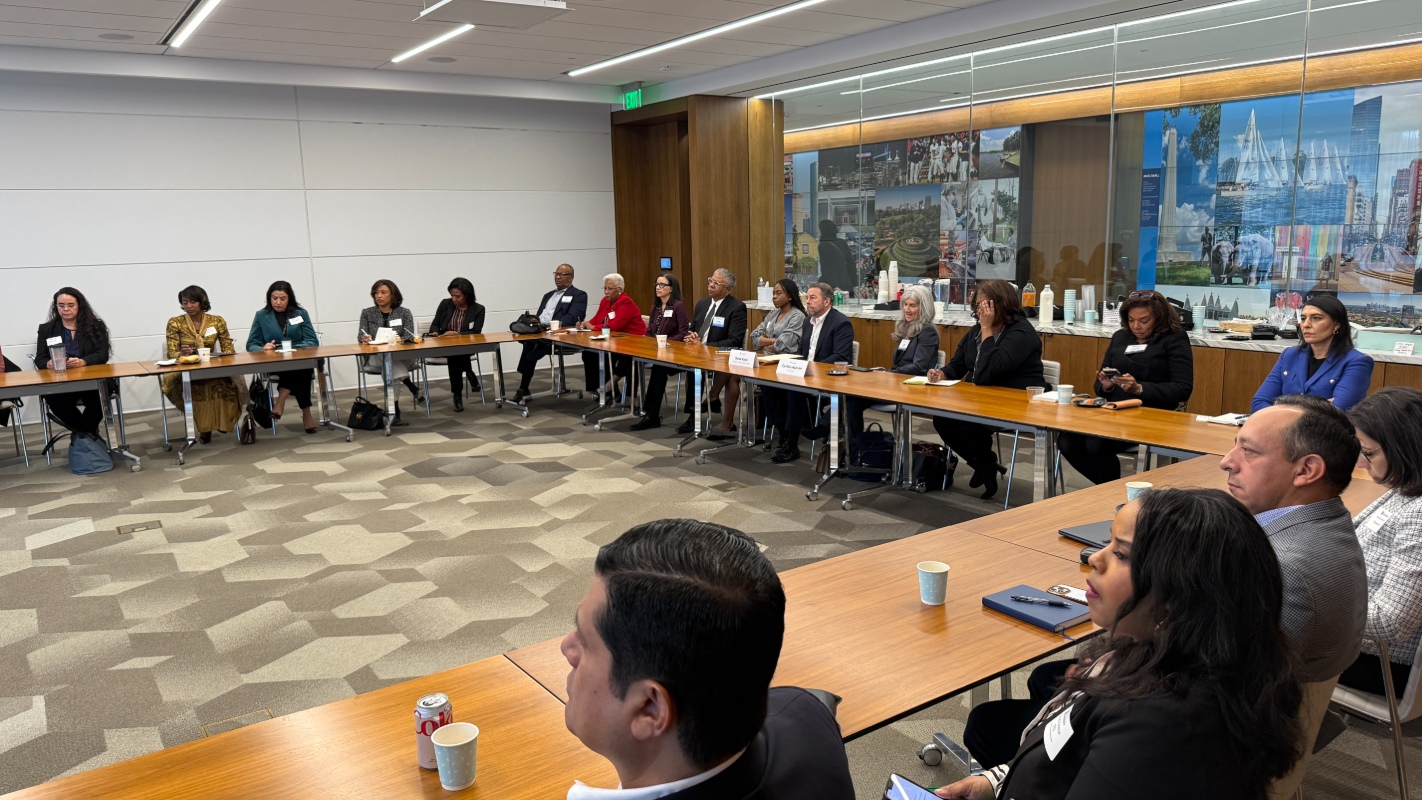Breaking Through Glass Ceilings and Other Takeaways from Rise to the Top
Published Mar 06, 2020 by Maggie Martin
The Partnership's 9th Annual Rise to the Top event brought together nearly 900 attendees to hear advice from exceptional female leaders. Hosted by the Partnership's Women's Business Alliance, the event is a celebration of International Women's Day (March 8). This year is particularly remarkable since 2020 marks the 100th anniversary of the passage of the 19th Amendment, guaranteeing and protecting a woman's constitutional right to vote.
Gretchen Watkins, President of Shell Oil Company and Executive Vice President for Shell's UpStream Unconventionals business, delivered the keynote address. She said, for women, breaking through the proverbial "glass ceiling" is crucial, but the next steps are just as important. That includes ensuring the next generation of women don't have to break that glass ceiling themselves.
And those who have broken through, said Watkins, are allowed to make mistakes.
"You may want to be perfect because you want to prove you should be there," she said, "but none of us carry the entire weight of womankind. None of us should feel the pressure to have it all all the time. Sometimes achieving a work-life balance means putting life first, and we shouldn’t feel guilty about that.”
Rise to the Top included a panel discussion, moderated by Darcie Durham, Senior Regional Director for National Strategy and Engagement for The Boeing Company and chair of the Partnership’s Executive Women’s Partnership.
The panelists were:
- Leslie Duke, President, Burns & McDonnell, Inc.
- Carol Hess, Vice President, Workstations Product Management, HP Inc.
- Gaby Rowe, Executive Director, The Ion
On what Houston can do to recruit more female talent into technology jobs
Hess said HP is very deliberate with recruiting. The company makes sure it's recruiting young talent at the right type of universities and colleges. Hess said in 2019, over 60% of new U.S. hires were from underrepresented groups including women, U.S. ethnicities, veterans and Persons with disabilities.
Rowe noted a lot of girls drop out of STEM classes around 7th grade. Whether it's families or peer pressure, said Rowe, girls are being convinced these jobs are not for them. She emphasized the need to reach these students early to keep them engaged.
On closing the gender gap
Duke said women tend to get "softer" reviews compared to their male counterparts, who are more likely to receive honest feedback from their managers. She encouraged women in the audience to insist on diving deeper in their performance reviews.
Rowe echoed that advice, adding that having those hard conversations shouldn't be limited to performance reviews, but should be happening throughout a woman's career.
On advice for young female professionals
Duke said women should get involved in business management and learn what drives growth within their company. She added that by doing so, women round out their development as leaders.
Hess encouraged women to try lots of different jobs and experiences to better understand their interests and passion. She added: "As you grow in you career, take other women with you and show them the way."
Learn more about the Women's Business Alliance and the Executive Women's Partnership.
We gather today to celebrate #InternationalWomensDay and ensure all female leaders Rise to the Top. #GHPRise #IWD2020 pic.twitter.com/wwJS2Osw9s
— Houston Partnership (@GHPartnership) March 6, 2020
 The Houston Report
The Houston Report



















